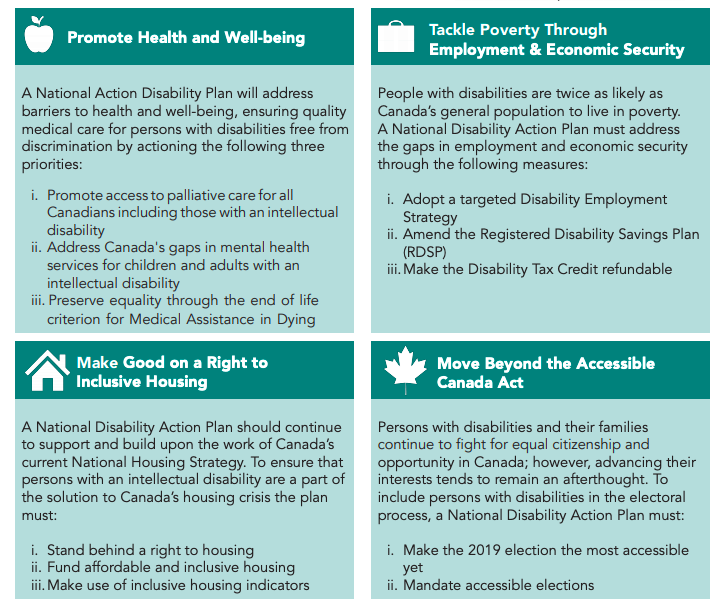- Studies have shown that 25% of persons with an intellectual disability have contemplated suicide, and the rates of mental illness are 3 or 4 times higher for this population.
- Working-age Canadians with an intellectual disability or Autism Spectrum Disorder (ASD) remain vastly under-represented in the labour force:
- 75%-80% of people with an intellectual disability are either unemployed or underemployed.
- 70% of adults with an intellectual disability are living in poverty.
- Of those working, the average income is less than half that of Canadians without a disability.
- We estimate that over 100,000 Canadians with intellectual and developmental disabilities currently live in precarious and vulnerable housing situations in Canada.
- Some persons with disabilities were disqualified from voting until 1988, and many others still face architectural and attitudinal barriers to voting. Nonetheless, voting in elections represents an important expression of democratic freedom and participation in a political community where other obstacles and exclusions remain.*
A National Disability Action Plan must:
For more details, check The Canadian Association for Community Living (CACL)’s National Disability Action Plan for the Federal Election 2019.
